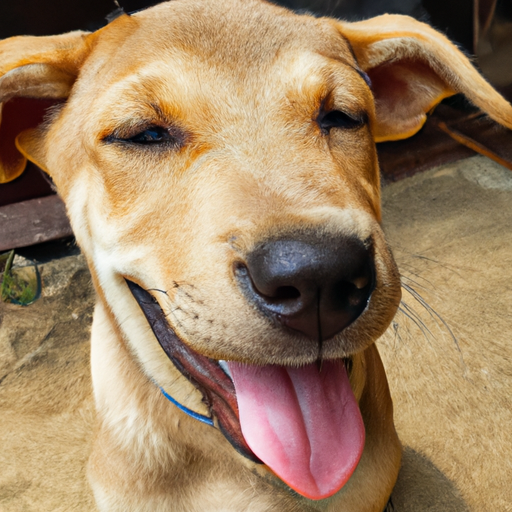Understanding Canine Behavior
First off, it’s crucial to understand that dogs communicate in ways that are often very different from our own. Their primary language isn’t verbal—it’s physical. Dogs use their bodies and the few sounds they can make to express a wide range of emotions and desires.
One of these physical expressions is licking, specifically, licking your face. This action isn’t just a random behavior. It’s a complex form of communication, full of nuances and implications that may seem strange to us, but are entirely normal in the world of dogs.
The Mother-Child Bond
Secondly, to understand why dogs lick faces, you need to go back to their earliest experiences. Licking is one of the first sensations that a dog experiences, even before it can see or hear. Mother dogs lick their newborn puppies to clean them and stimulate their breathing. Puppies, in turn, lick their mother’s face as a way of asking her to regurgitate food for them.
This mother-child bond formed through licking continues into their adulthood, and it’s why your dog may lick your face—they see you as a parental figure, someone who provides care and protection.
Submission and Respect
Thirdly, dogs lick faces to show submission and respect. In a pack, lower-ranking dogs will often lick the faces of the higher-ranking ones as a way of acknowledging their superior status. When a dog licks your face, it may be their way of saying, “I acknowledge that you are in charge.”
This doesn’t mean that your dog sees you as a tyrant, but rather as a leader who they can trust and respect.
Affection and Bonding
Fourthly, dogs lick faces simply because they like it. Licking releases endorphins in a dog’s brain, which makes them feel calm and content. It’s also a way for dogs to strengthen their bond with you. Just like humans show affection through hugs and kisses, dogs do the same through licks.
Sensory Exploration
Lastly, dogs use their tongues to explore the world. They have fewer taste buds than humans, but their sense of smell is much more powerful. When a dog licks your face, they’re getting a wealth of information about you, from what you’ve eaten recently to where you’ve been.
Frequently Asked Questions
- Is it safe for a dog to lick your face?
-
Generally, it is safe, but there’s a small risk of transmission of bacteria or parasites. It’s best to avoid letting a dog lick your mouth or nose.
-
How can I stop my dog from licking my face?
-
You can discourage the behavior by redirecting their attention or gently moving away each time they start to lick.
-
Do all dogs lick faces?
-
Not all dogs do this. Some might have been trained not to, or they may simply not have the inclination.
-
Is face-licking a sign of dominance in dogs?
- No, it’s usually a sign of affection, respect, or submission.
So, the next time your furry friend gives you a slobbery kiss, remember – it’s just their way of saying “I love you!”



